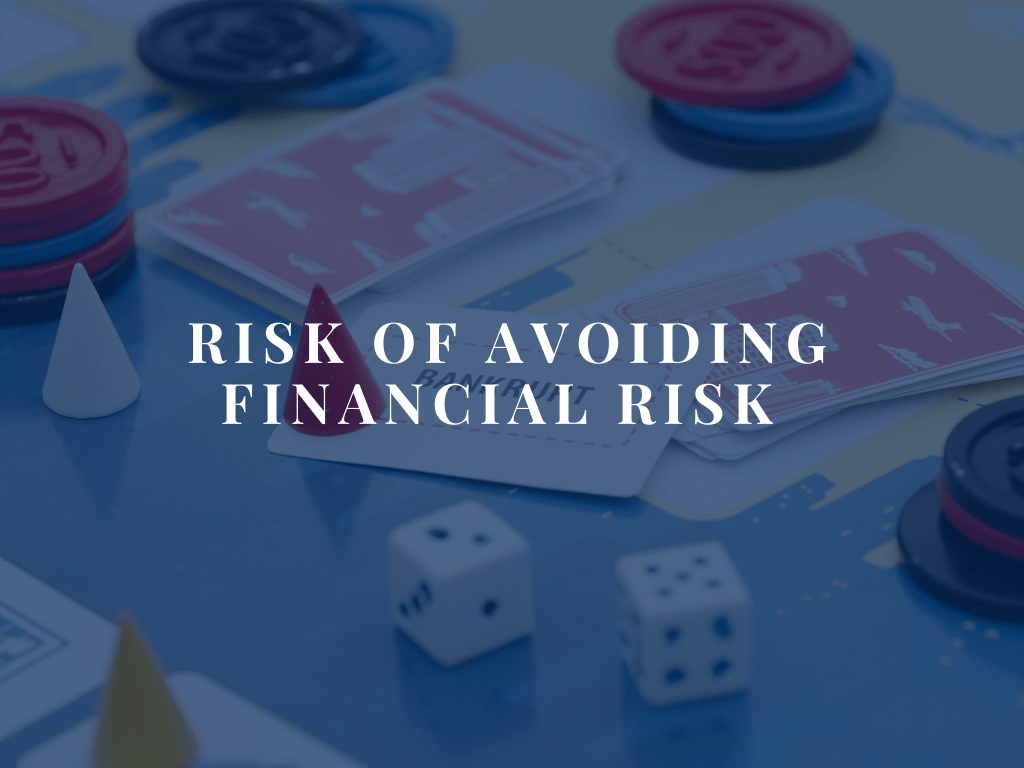
One of the most important aspects of responsible financial planning is risk management. A proper understanding of risk can help you anticipate losses and gains and create an investment strategy with your financial planner as you build wealth. Assessing your risk tolerance can guide you in your investment decisions. Armed with this knowledge, you can start to see the risk of avoiding risk.
It is important to identify your financial goals, what it will take to reach those goals and understand the level of risk you are willing to take to get there. Your goals and behavior must be aligned.
What Is Financial Risk?
Financial risk management is the process of identifying and assessing the uncertainty that comes with investing. It involves quantifying the potential losses of any given investment and then using methods to mitigate that risk as much as possible. A portfolio manager is tasked with deciding whether the risk of investing is worth the possible return or if the risk is too great.
There are different kinds of financial risks. The most common are:
- Market risk, which involves the possibility of loss due to factors that affect the financial markets as a whole.
- Credit risk, which involves the possibility of loss due to the borrower’s inability to satisfy loan obligations. Think of the ability of a company to repay a bond they issue to investors.
- Liquidity risk, which involves the possibility of loss when an investor or financial institution cannot meet its short-term loan obligations.
- Operational risk, which involves the possibility of loss due to internal processes, people, organization or external events.
When you are working with your portfolio manager, you should expect him or her to have knowledge of what kinds of risks are in your portfolio and how changes in the market will impact it. You should also ensure that your portfolio manager has a thorough understanding of (or at least can intuit based on your needs and habits) your risk tolerance.
Shouldn’t I Avoid Risk?
While risk is inherent to any investment decision, the amount of risk you take and the type of risks you take should be discussed at length with your portfolio manager. He or she will analyze investment ideas and break down how those ideas could affect your finances, what you stand to gain if the investments are successful, and what you stand to lose if the investments do not work out. This is also when the portfolio manager should be able to understand your unique risk tolerance.
Here are a couple of important investing concepts that can reduce risk:
- Portfolio Diversification
Portfolio diversification is key to ensuring that an investment does not cause irreparable financial damage. You have a number of ways to manage your finances should an investment result in a loss. Those strategies will help you stay afloat if a loss occurs. Placing all your confidence in a single company is a rather high-risk investment strategy, but if you spread your investments in your portfolio over many different investments that are not completely correlated, you’re less likely to feel the sting of a possible loss. You’re still taking a risk, but it’s mitigated by not putting all your eggs in one basket. - Asset Allocation
One of the practices that coincides with portfolio diversification is asset allocation. Having an appropriate disbursement of stocks, bonds and money market instruments can create a financial safety net that makes risk less impactful. Each of these assets belongs to a different class and carries different implications when it comes to investments. These asset classes carry different risks but each serves a purpose within a portfolio.
A Wise Approach to Risk
When it comes to investments, risk is a necessary part of the equation. But understanding the spectrum of risks involved, and learning how to mitigate them, is how your portfolio manager can work with you to be more financially comfortable and successful. All investors have their own risk tolerance, and there are myriad ways to leverage that tolerance for financial security.
For more information on risk management in financial planning, contact us today.
Looking for a Financial Advisor?
Answer our 8 question quiz and get matched with a pro for you.
Carnegie Investment Counsel is a federally registered investment adviser under the Investment Advisers Act of 1940. Registration as an investment adviser does not imply a certain level of skill or training.


